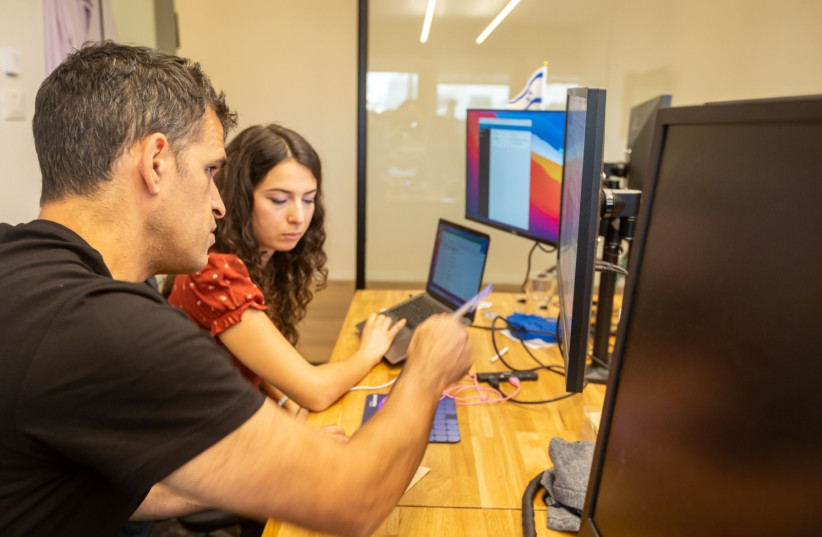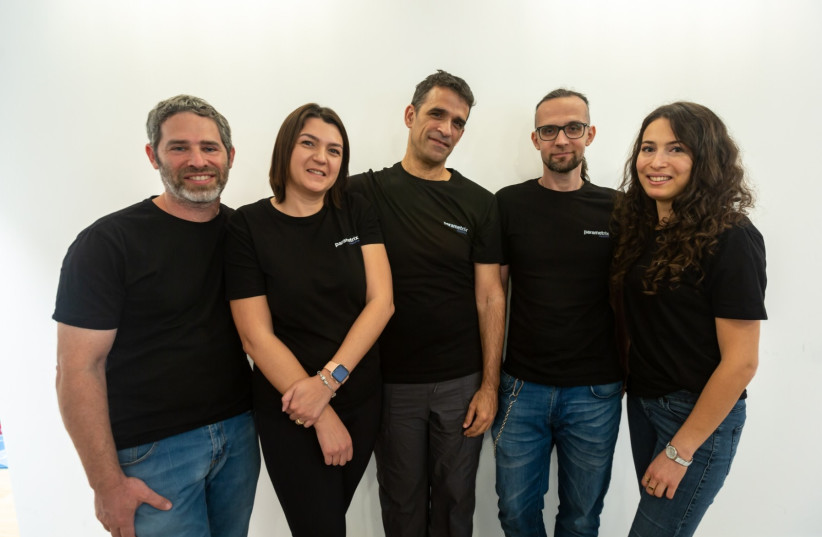The journey of immigrating to Israel is long and filled with mixed emotions: excitement, fear, fulfillment and frustration. Every year, people from around the world make their way to the blue and white nation to become citizens of a country in which they wish to make their homes and careers.
For many immigrants, the siren song of joining Israel’s world-recognized start-up industry is too hard to resist and many find themselves overcoming the hurdles in order to become hi-tech workers in the start-up nation.
For Marion, a 26-year-old woman from France who asked that she be identified only by her first name, immigrating to Israel was always a thought hovering in the back of her mind.
“I always wanted to make aliyah, but didn’t want to do it right away,” she said. “After my studies, I wanted to discover the world a little bit, because I was like ‘when I go to Israel, it will be home and I’ll stay there, so let’s discover a few things before that.”
And so, while she prepared her documentation for her inevitable immigration, she took some time to move around and see the world. After finishing engineering school in France, Marion spent a year interning in New York before moving to Luxembourg, where she worked remotely for a year, returning home to France soon after.

“During this time, I was thinking more and more about moving to Israel, so I looked for a job there.”
She believed that having a job ready for her was a necessity for her move, due in part to the stress of the beginning pandemic.
“There was a lot of uncertainty about COVID. We didn’t know when it would end, I knew that I would come and would probably be stuck inside. I didn’t want to just study ulpan [at home] over Zoom – I could do that from France. If I moved during this time, I wanted to have a job.”
What she found during her search was the Israeli start-up Parametrix, an insure-tech company which revolutionizes the claims process in the traditionally slow-moving insurance industry.
“I got directly in touch with Parametrix. I loved the idea of the company. I loved the spirit. It was a young startup, very different from, you know, a big property and casualty insurance company. It was something completely new for me and I was very interested.”
Marion expressed that a huge factor in her interest in Parametrix was the company’s co-founders: Neta Rozy and Ori Cohen, both of whom made Forbes’ 30 under 30 list just last month. “It’s inspiring: they’re women, they’re very young and they’re extremely smart. It’s really inspiring. I always say to them that they’re queens.”
In a classic Israeli job-hunting twist, Marion discovered that the job listing she found didn’t actually exist at the company yet – so she bided her time back home in France waiting for a position to open up. One day, she got a call from her soon-to-be team lead, offering her a position as an actuarial analyst.
“We talked and I signed. I went to the Jewish Agency and said ‘it’s time, you can book me on a plane. I am doing it.’ One month later I was on the plane from Paris to Tel Aviv in the middle of COVID.”
Despite the challenges presented by the pandemic, Marion quickly adapted to her new career; thanks in part to a supportive team.
“I was lucky: the team here is amazing. Of course, there was a culture shock when I arrived here in Israel. In general, there are challenges, but I would say that, in terms of my own experience, I got very lucky with the team. I always say to them ‘you’re my family away from my family.’”
“They’re always there to help me with anything. Last May when there were rockets from Gaza, everybody reached out to me, called me to see if I was outside and if I needed to find a place to sleep. A coworker called me and asked if she could book me a hotel room in case I couldn’t get back home – everybody was taking care of me to make sure I was safe.”
That feeling of camaraderie and kinship, said Marion, is indicative of the greater Israeli hi-tech world.

“I think it’s the spirit of hi-tech in Israel and the startup world: we are all a big family who are building these companies together and taking care of each other. It’s a familial world and when we make aliyah, it’s a great world to come into because it’s very personal. Everybody wants to know everybody on a personal level and help each other.”
That said, integrating into the office hasn’t been without its speed bumps. Marion explained that, due to the initial language barrier, she has found it challenging at times to stay in the loop. “I don’t speak very well. Of course, big meetings are always in English, but often at office events, quick meetings or meetings without me Hebrew is spoken, so sometimes I lose some information.”
This sentiment rings true for many immigrants who have moved to Israel and joined the hi-tech world. Enjoyment of one’s job can sometimes give way to the feeling that they’re not quite getting the full picture. Even asking for a simple translation can feel uncomfortable at times.
“In the kitchen or during lunch [when they’re speaking a lot of Hebrew], sometimes I’ll nudge them and say ‘English, English,’ but they tell me ‘Marion you need to progress in your Hebrew!’ and they’re right.”
That kind of response can be difficult to hear in the moment, but Marion gets where they’re coming from.
“I understand it. I imagine myself in a situation where I am in France: someone comes [from another country] and we speak in English, but sometimes when I’m having small talk with others we will speak in French, because we don’t think about it.”
Her understanding doesn’t make the language barrier disappear, though, so Marion has spent hours in ulpan learning the nation’s first language.
“There are still things that I don’t follow 100%. Sometimes, when I feel like it’s important, I say to someone in the team ‘what are you talking about – I think it’s interesting,’ because I understand keywords. If I ask, they always translate to me, but of course I miss things.”
“That’s why it’s important to speak Hebrew. We think that in Israel everybody speaks English – and it’s partly true, especially in the tech world – but it’s important to master Hebrew. For me, it’s taken time because I have work, there are a few projects that I’m currently working on, I have a social life and integrating in Israel in general, so it takes time because I didn’t do just one thing at a time. But, I think it’s important.”
“I wouldn’t advise any olim to think that they can integrate 100% in Israel without speaking or understanding Hebrew,” Marion suggested. “My [immigrant] friends are not completely fluent, but they still understand and catch basic information – even if they answer in English, they catch the information.”
Marion concluded by noting that the most crucial element of immigrating into Israel – and its hi-tech world – is to meet the country on its own terms, with language being the key element of that step.
“After one year and four months here, I recognize the need to improve my Hebrew. It’s important,” she said. “It’s a Hebrew-speaking country [at its core] – even if everybody speaks English.”
